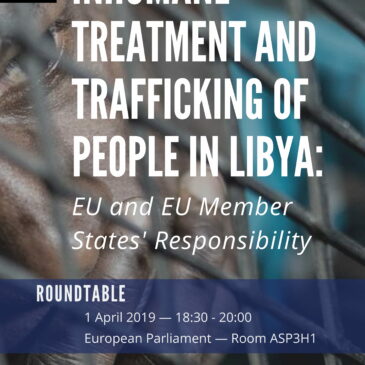Roundtable on 1 April at the EU parliament: “Inhumane treatment and trafficking of people in Libya – The EU’s and EU Member states’ responsibility”
The roundtable was held from 18:30 – 20:00 and was hosted by Marie-Christine Vergiat (GUE/NGL Group) and Ana Gomes (S&D Group) together with the organisation Europe External Programme with Africa (EEPA). Human rights activists, journalists, NGO representatives and experts spoke during … Continued



